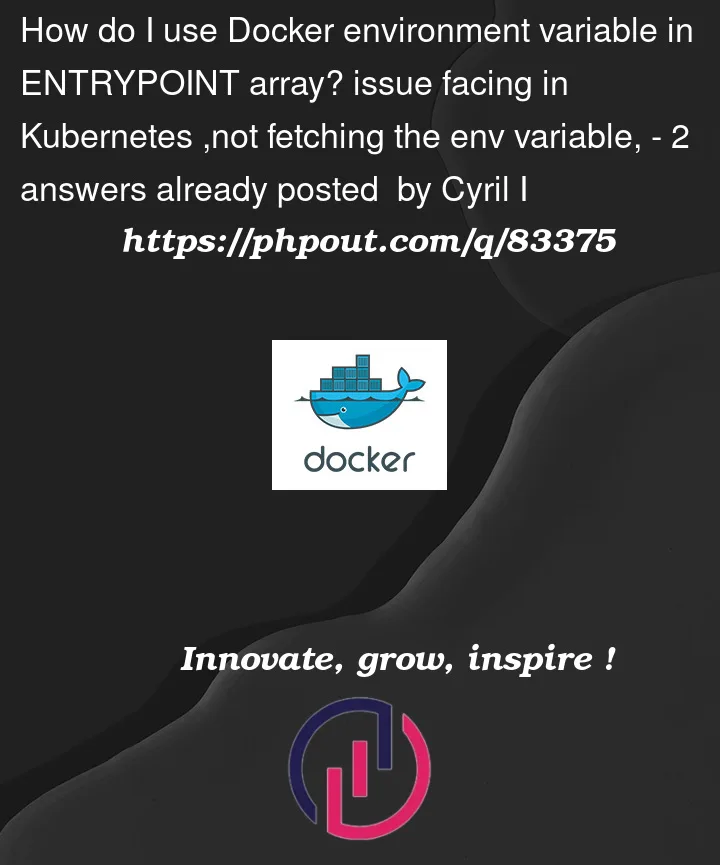We’re using gitlab for CI/CD.I’ll include the script which we’re using
services:
- docker:19.03.11-dind
workflow:
rules:
- if: $CI_COMMIT_BRANCH == $CI_DEFAULT_BRANCH || $CI_COMMIT_BRANCH == "developer" || $CI_COMMIT_BRANCH == "stage"|| ($CI_COMMIT_BRANCH =~ (/^([A-Z]([0-9][-_])?)?SPRINT(([-_][A-Z][0-9])?)+/i))
when: always
- if: $CI_COMMIT_BRANCH != $CI_DEFAULT_BRANCH || $CI_COMMIT_BRANCH != "developer" || $CI_COMMIT_BRANCH != "stage"|| ($CI_COMMIT_BRANCH !~ (/^([A-Z]([0-9][-_])?)?SPRINT(([-_][A-Z][0-9])?)+/i))
when: never
stages:
- build
- Publish
- deploy
cache:
paths:
- .m2/repository
- target
build_jar:
image: maven:3.8.3-jdk-11
stage: build
script:
- mvn clean install package -DskipTests=true
artifacts:
paths:
- target/*.jar
docker_build_dev:
stage: Publish
image: docker:19.03.11
services:
- docker:19.03.11-dind
variables:
IMAGE_TAG: $CI_REGISTRY_IMAGE:$CI_COMMIT_SHORT_SHA
script:
- docker login -u $CI_REGISTRY_USER -p $CI_REGISTRY_PASSWORD $CI_REGISTRY
- docker build --build-arg environment_name=development -t $IMAGE_TAG .
- docker push $IMAGE_TAG
only:
- /^([A-Z]([0-9][-_])?)?SPRINT(([-_][A-Z][0-9])?)+/i
- developer
docker_build_stage:
stage: Publish
image: docker:19.03.11
services:
- docker:19.03.11-dind
variables:
IMAGE_TAG: $CI_REGISTRY_IMAGE:$CI_COMMIT_SHORT_SHA
script:
- docker login -u $CI_REGISTRY_USER -p $CI_REGISTRY_PASSWORD $CI_REGISTRY
- docker build --build-arg environment_name=stage -t $IMAGE_TAG .
- docker push $IMAGE_TAG
only:
- stage
deploy_dev:
stage: deploy
image: stellacenter/aws-helm-kubectl
before_script:
- aws configure set aws_access_key_id ${DEV_AWS_ACCESS_KEY_ID}
- aws configure set aws_secret_access_key ${DEV_AWS_SECRET_ACCESS_KEY}
- aws configure set region ${DEV_AWS_DEFAULT_REGION}
script:
- sed -i "s/<VERSION>/${CI_COMMIT_SHORT_SHA}/g" patient-service.yml
- mkdir -p $HOME/.kube
- cp $KUBE_CONFIG_DEV $HOME/.kube/config
- chown $(id -u):$(id -g) $HOME/.kube/config
- export KUBECONFIG=$HOME/.kube/config
- kubectl apply -f patient-service.yml -n ${KUBE_NAMESPACE_DEV}
only:
- /^([A-Z]([0-9][-_])?)?SPRINT(([-_][A-Z][0-9])?)+/i
- developer
deploy_stage:
stage: deploy
image: stellacenter/aws-helm-kubectl
before_script:
- aws configure set aws_access_key_id ${DEV_AWS_ACCESS_KEY_ID}
- aws configure set aws_secret_access_key ${DEV_AWS_SECRET_ACCESS_KEY}
- aws configure set region ${DEV_AWS_DEFAULT_REGION}
script:
- sed -i "s/<VERSION>/${CI_COMMIT_SHORT_SHA}/g" patient-service.yml
- mkdir -p $HOME/.kube
- cp $KUBE_CONFIG_STAGE $HOME/.kube/config
- chown $(id -u):$(id -g) $HOME/.kube/config
- export KUBECONFIG=$HOME/.kube/config
- kubectl apply -f patient-service.yml -n ${KUBE_NAMESPACE_STAGE}
only:
- stage
According to the script, We just merged the script not to face conflicts/clashes for stage and development while deployment. Previously , we having each docker files for each environment. Now I want to merge the dockerfile also , I merged, but the dockerfile is not fetching. Having clashes in kubernetes. I don’t know about kubernetes . I’ll enclosed the docker file which I merged.
FROM maven:3.8.3-jdk-11 AS MAVEN_BUILD
COPY pom.xml /build/
COPY src /build/src/
WORKDIR /build/
RUN mvn clean install package -DskipTests=true
FROM openjdk:11
ARG environment_name
WORKDIR /app
COPY --from=MAVEN_BUILD /build/target/patient-service-*.jar /app/patient-service.jar
ENV PORT 8094
ENV env_var_name=$environment_name
EXPOSE $PORT
ENTRYPOINT ["java","-Dspring.profiles.active= $env_var_name","-jar","/app/patient-service.jar"]
the last line , we used before ,
ENTRYPOINT ["java","-Dspring.profiles.active=development","-jar","/app/patient-service.jar"]
at the time, its working fine, I’m not facing any issue on kubernetes. I’d just add environment variable to fetch along with whether development or stage. You can check ,my script after the docker build. After adding the varaible only , we facing the clashes. Please help me to sort it out this. Thanks in advance




2
Answers
As already mentioned in the question in the comment section, you would need to execute a shell form, because the exec form won’t do directly do variable substitution.
needs to be
Relevant documentation from Docker Docs: Shell form ENTRYPOINT example
It’s common practice to use an
entrypoint.shscript that does hold the necessary logic. It can easily consume the environment variables and additionally validate them and act accordingly.https://github.com/docker-library/docker/blob/master/dockerd-entrypoint.sh is a complex example from the dockerd daemon.